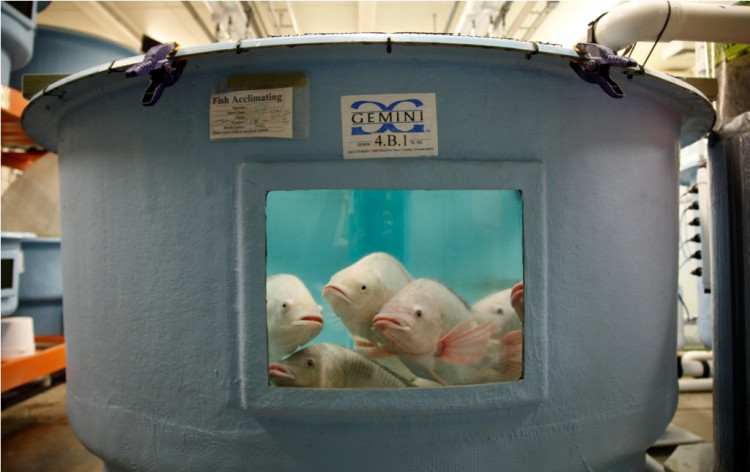Over the past few years, Singapore has been breeding tilapia, the second most-farmed fish in the world, and technology has helped the sector enhance its goal of developing a species that is resilient to salt water.
According to Channel News Asia, the Temasek Life Sciences Laboratory (TLL) has been trying to develop a new breed of tilapia that can grow and live in salt water areas. Tilapia is a type of fish that has shown high mortality rates when they are bred in sea water. Over eight years since TLL started its study and breeding program, the team said they have "almost achieved" their goal.
"We have been hoping to achieve high-yield, fast-growth tilapia that can survive in sea water. I think we have almost achieved that," research investigator with TLL, Liew Woie Chang, said.
The team has been using advanced technology to identify tilapia that display the desired traits necessary for breeding sea water-resilient species. So far, TLL researchers have bred fifth-generation salt-tolerant species. The process did not include any genetic modification, which makes the program of high interest among investors in marine sectors.
Aside from tilapia, another laboratory with TLL has been working on vegetables that could stand against various climate changes. Dr. Urano Daisuke, who has been with the farming team, said the group wants to grow climate-proof vegetables that will help farmers reduce costs and increase profits.
Singapore's fishery and farming sectors have been using an array of tech-powered equipment to achieve their goals. The government supports research and development (R&D) programs under these industries as part of its bid to boost these sectors.
Both in farming and marine sectors, Singapore is heading towards a 2030 goal of providing communities with 30 percent of home-grown food produce. Earlier this month, the government announced plans to promote growing vegetables in indoor farming pods that use smart intelligent lighting systems.
Fish will be bred at sea in systems that keep them from toxic algae and other climate changes that could hamper the development process. These containers will also keep the fish safe from oil spills. All of these are part of the government's "30 by 30" initiative that sees Singapore producing 30 percent of its food locally in the year 2030.
The Singaporean Parliament is expected to deliberate on solutions that will help raise productivity. R&D programs will be established to help farms and fisheries obtain knowledge about processes that will strengthen climate resilience for the produce.
Improved aquaculture systems will be encouraged for marine industries to pump up production to around 15 times more than what traditional systems can provide.






